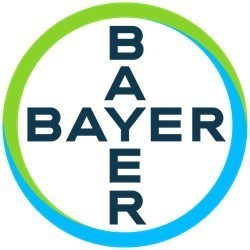CAMBRIDGE, Mass., June, 29, 2018 /PRNewswire/ -- The Broad Institute of MIT and Harvard and Bayer are launching the Precision Cardiology Laboratory (PCL), a new endeavor that will pursue scientific insights aimed at developing new therapies for heart failure.
According to the American Heart Association, more than 900,000 people are diagnosed with heart failure every year in the United States. The condition, which results from the failure of the heart to pump enough blood, is one of the most common reasons for hospitalization among adults. There are many causes of heart failure, and the PCL will use new tools and methods to more fully understand and treat them.
Research in the PCL will bring scientists from both organizations into an integrated work space at the Broad Institute, effectively combining Broad's innovative methods for basic scientific discovery and the clinical expertise of its practicing physician/researchers with Bayer's long history of drug development. The effort will be led by Broad Associate Member Patrick Ellinor, who directs the Cardiac Arrhythmia Service at Massachusetts General Hospital and is a professor of medicine at Harvard Medical School.
The PCL's initial goal is to develop high-resolution, single-cell maps of cardiovascular tissues in human and animal models. Using tissue samples donated by healthy individuals as well as people suffering from cardiovascular disease, researchers will build datasets to accelerate insights into heart failure.
"Such high-resolution maps of cells and tissues will be a profound asset for understanding heart failure and for developing new and better drugs," said Ellinor. "I am extremely excited by the potential of this expanded partnership to benefit patients."
The Broad-Bayer partnership began in 2013 with an oncology program. In 2015, the organizations launched a cardiovascular-specific collaboration aimed at using genomics to better understand cardiovascular disease. Now, the PCL will use non-genomic approaches to jumpstart the development of new therapeutics for heart failure.
Through this expanded partnership, Bayer is dedicating an additional $22 million to the collaboration over the next five years.
"The Broad Institute is an important and strategic partner for Bayer enabling us to deepen our understanding in the area of cardiovascular diseases and we are looking forward to extending our collaboration even further," said Dr. Joerg Moeller, member of the Executive Committee of Bayer AG's Pharmaceuticals Division and Head of Research and Development. "Joint laboratories are a novel partnering model for industry and academia and will bring Bayer and Broad Institute cardiovascular research to the next level."
The PCL will be guided by a joint steering committee. Ultimately, the lab will involve roughly 20 people with affiliations divided between the two organizations. The institutions will continue to openly share findings that arise from the collaboration through both publicly-available datasets and academic journals.
About the Broad Institute of MIT and Harvard
Broad Institute of MIT and Harvard was launched in 2004 to empower this generation of creative scientists to transform medicine. The Broad Institute seeks to describe all the molecular components of life and their connections; discover the molecular basis of major human diseases; develop effective new approaches to diagnostics and therapeutics; and disseminate discoveries, tools, methods, and data openly to the entire scientific community.
Founded by MIT, Harvard, Harvard-affiliated hospitals, and the visionary Los Angeles philanthropists Eli and Edythe L. Broad, the Broad Institute includes faculty, professional staff, and students from throughout the MIT and Harvard biomedical research communities and beyond, with collaborations spanning over a hundred private and public institutions in more than 40 countries worldwide. For further information about the Broad Institute, go to https://www.broadinstitute.org.
About Cardiology at Bayer
Bayer is committed to delivering science for a better life by advancing a portfolio of innovative treatments. Cardiovascular diseases have become a severe problem in our society. Bayer is working in a wide range of therapeutic areas on new treatment approaches for cardiovascular, lung and kidney diseases. The cardiology franchise at Bayer already includes a number of products and several other compounds in various stages of preclinical and clinical development. Together, these products reflect the company's approach to research, which prioritizes targets and pathways with the potential to impact the way that cardiovascular diseases are treated.
About Bayer
Bayer is a global enterprise with core competencies in the Life Science fields of health care and agriculture. Its products and services are designed to benefit people and improve their quality of life. At the same time, the Group aims to create value through innovation, growth and high earning power. Bayer is committed to the principles of sustainable development and to its social and ethical responsibilities as a corporate citizen. In fiscal 2017, the Group employed around 99,800 people and had sales of EUR 35.0 billion. Capital expenditures amounted to EUR 2.4 billion, R&D expenses to EUR 4.5 billion. For more information, go to www.bayer.com.
© 2017 Bayer
Bayer and the Bayer Cross are registered trademarks of Bayer.
Our online press service is just a click away: press.bayer.com
Follow us on Facebook: http://www.facebook.com/pharma.bayer
Follow us on Twitter: https://twitter.com/BayerPharma
Bayer Media Contact
Sasha Damouni
862-404-4777
[email protected]
Broad Institute Media Contact
David Cameron
617-714-7184
[email protected]
Bayer Forward Looking Statement
This news release may contain forward-looking statements based on current assumptions and forecasts made by Bayer Group or subgroup management. Various known and unknown risks, uncertainties and other factors could lead to material differences between the actual future results, financial situation, development or performance of the company and the estimates given here. These factors include those discussed in Bayer's public reports which are available on the Bayer Web site at www.bayer.com. The company assumes no liability whatsoever to update these forward-looking statements or to conform them to future events or developments.
SOURCE Bayer
Related Links
WANT YOUR COMPANY'S NEWS FEATURED ON PRNEWSWIRE.COM?
Newsrooms &
Influencers
Digital Media
Outlets
Journalists
Opted In






Share this article